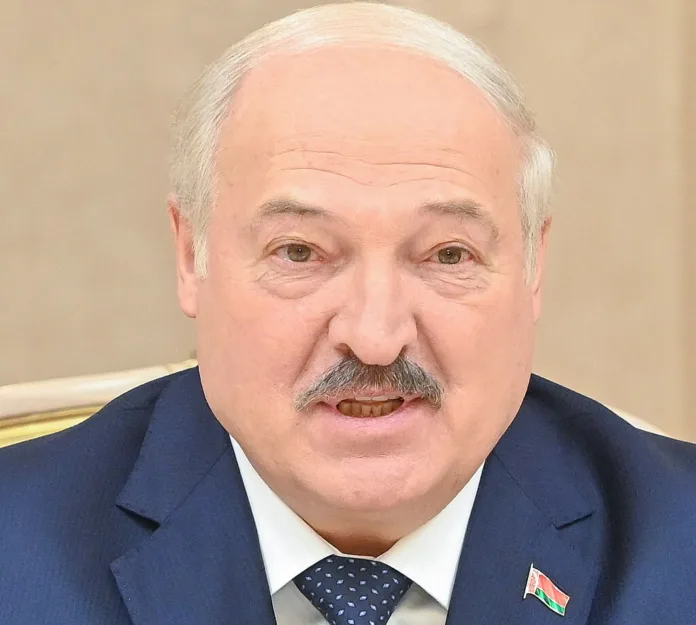Kyiv calls for the removal of Belarusian troops and equipment from the border, citing the presence of special forces and Ex-Wagner mercenaries, while a British journalist is killed in a Russian missile strike in Kramatorsk
On August 25, 2024, Ukraine issued a stern call for Belarus to withdraw its military forces and equipment from their shared border, citing an alarming buildup of Belarusian troops, including special forces and former Wagner mercenaries. The Ukrainian foreign ministry expressed concerns about Belarus potentially making “tragic mistakes” under Moscow’s pressure. This buildup reportedly includes tanks, artillery, air defence systems, and engineering equipment, raising tensions along the border.
The call comes as a response to the significant presence of Belarusian military assets, which have been deployed in what Ukraine perceives as a threat. The ministry emphasized that Ukraine has no intentions of taking any hostile actions against the Belarusian people, but is wary of the potential consequences of Belarus’s military posture. The situation mirrors the 2022 scenario when Belarusian President Alexander Lukashenko permitted Russian troops to conduct exercises in Belarus, which preceded Russia’s invasion of Ukraine.
In a tragic development, British safety adviser Ryan Evans, working for Reuters, was killed in a missile strike on a hotel in Kramatorsk, eastern Ukraine. The Hotel Sapphire, where Evans was staying with a six-person team, was hit by a Russian Iskander missile on Saturday. Evans, a former British soldier, had been advising Reuters journalists on safety issues globally, including in conflict zones such as Ukraine. Two of his colleagues were injured in the attack, with one in serious condition.
Ukrainian President Volodymyr Zelensky condemned the attack, describing it as a deliberate act targeting civilians. He stated that the missile strike on the hotel was “absolutely purposeful” and extended his condolences to Evans’s family and colleagues. Russia has been targeting civilian infrastructure, including hotels in frontline areas, for over a year as part of its military strategy.
In addition to the hotel strike, Ukraine’s forces achieved notable advancements on the battlefield. Zelensky reported that Ukrainian troops advanced up to three kilometres into Russia’s Kursk region, capturing two additional settlements. Despite these gains, Russia’s attacks persisted across northern, eastern, and southern Ukraine, resulting in at least four fatalities and 37 injuries. The Ukrainian air force reported overnight strikes on Chernihiv, Sumy, Kharkiv, and Donetsk, though most missiles were intercepted or missed their targets.
Former U.S. President Donald Trump expressed his support for Ukraine in a conversation with Zelensky, emphasizing his desire to end the conflict with Russia. Trump’s stance aligns with broader international efforts to mediate and negotiate a resolution to the ongoing war. Ukrainian officials remain hopeful that increased diplomatic support will contribute to de-escalation and eventual peace.
Analysis:
Political: Ukraine’s demand for Belarus to withdraw its military forces underscores the escalating geopolitical tensions in the region. The presence of Belarusian troops at the border is perceived as a potential extension of Russia’s influence, reflecting the broader geopolitical struggle between Ukraine and Russia, and by extension, Russia’s allies. The situation could lead to further diplomatic friction between Ukraine and Belarus, and possibly affect international relations if Belarus is seen as complicit in Russia’s aggression.
Social: The conflict has significant social repercussions for both Ukrainian and Belarusian civilians. The presence of foreign troops and military equipment at the border can exacerbate fears and anxieties among local populations. In Ukraine, the impact of continuous attacks, including the recent missile strike on a civilian hotel, highlights the ongoing threat to civilian safety and the broader humanitarian crisis. The death of a journalist further underscores the dangers faced by those reporting from conflict zones.
Racial: While the current conflict does not directly involve racial issues, it is influenced by broader ethnic and national identities. The involvement of Belarusian forces, particularly with the historical context of Belarus’s alliance with Russia, adds a layer of complexity to the regional dynamics. The ethnic dimensions of the conflict are more pronounced in the context of historical tensions between Russia and Ukraine, which include longstanding cultural and political disputes.
Gender: The gendered impact of the conflict is visible in the disproportionate effects on women and children, who often face increased hardships during wartime. The displacement of families, the loss of life, and the destruction of infrastructure have significant consequences for women and children in affected areas. The death of a British journalist also highlights the risks faced by individuals working in high-risk environments, regardless of gender.
Economic: The ongoing conflict continues to strain the economies of the involved countries. The presence of military forces and equipment at the border can disrupt trade and economic activities in the region. The attack on a hotel in Kramatorsk not only results in loss of life but also damages infrastructure that could impact local economic stability. Furthermore, the broader implications of sustained warfare include increased military spending and the economic burden of rebuilding affected areas.
